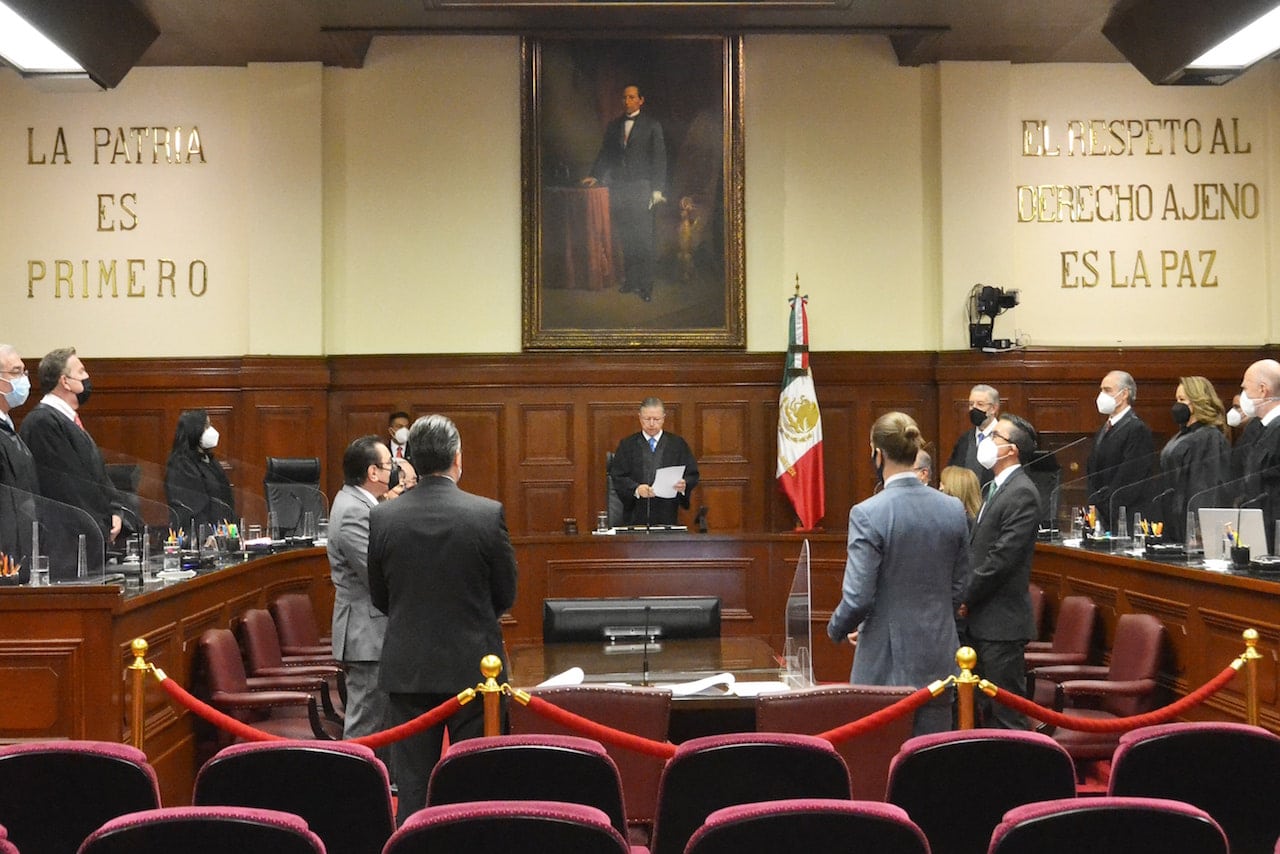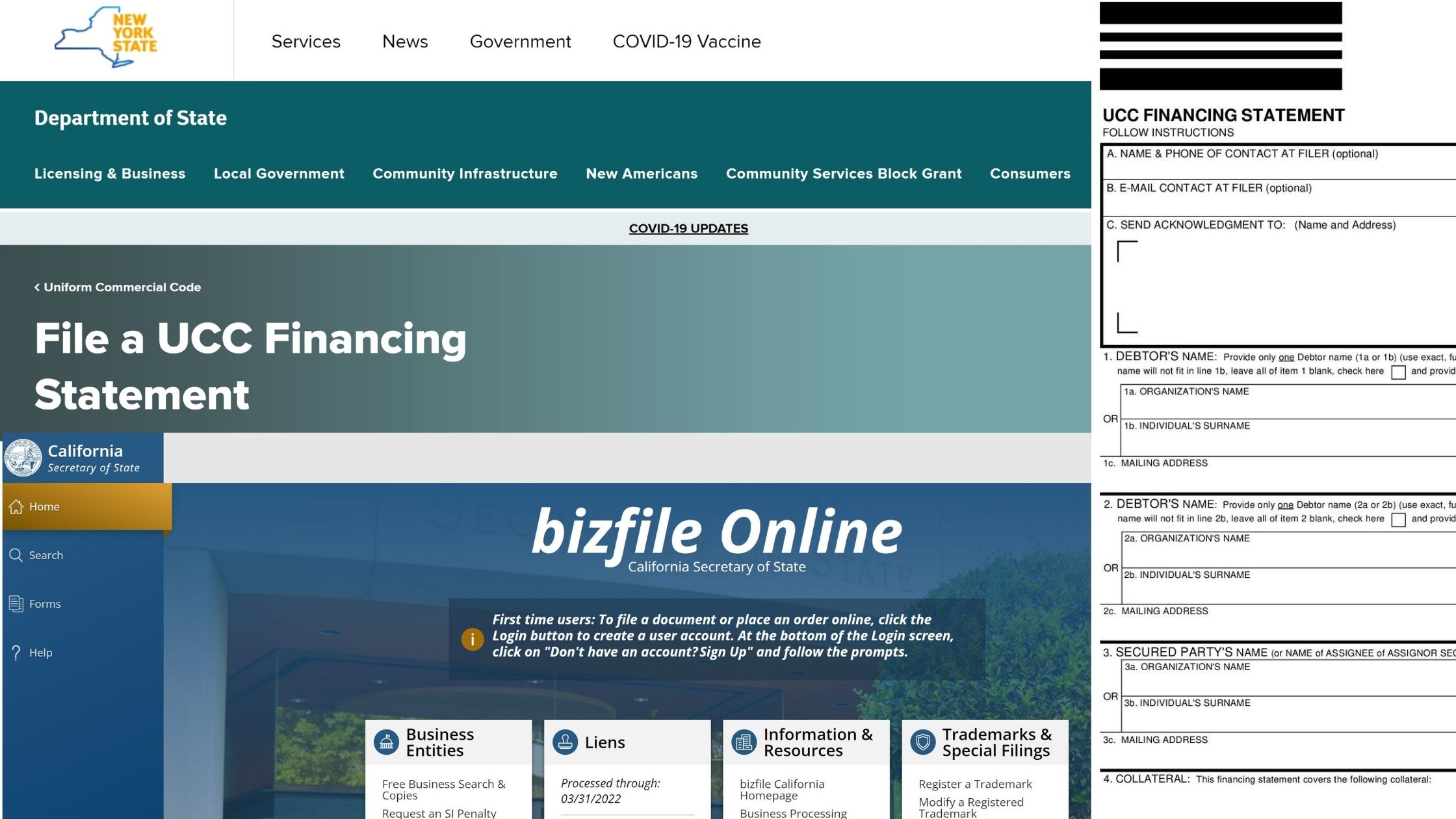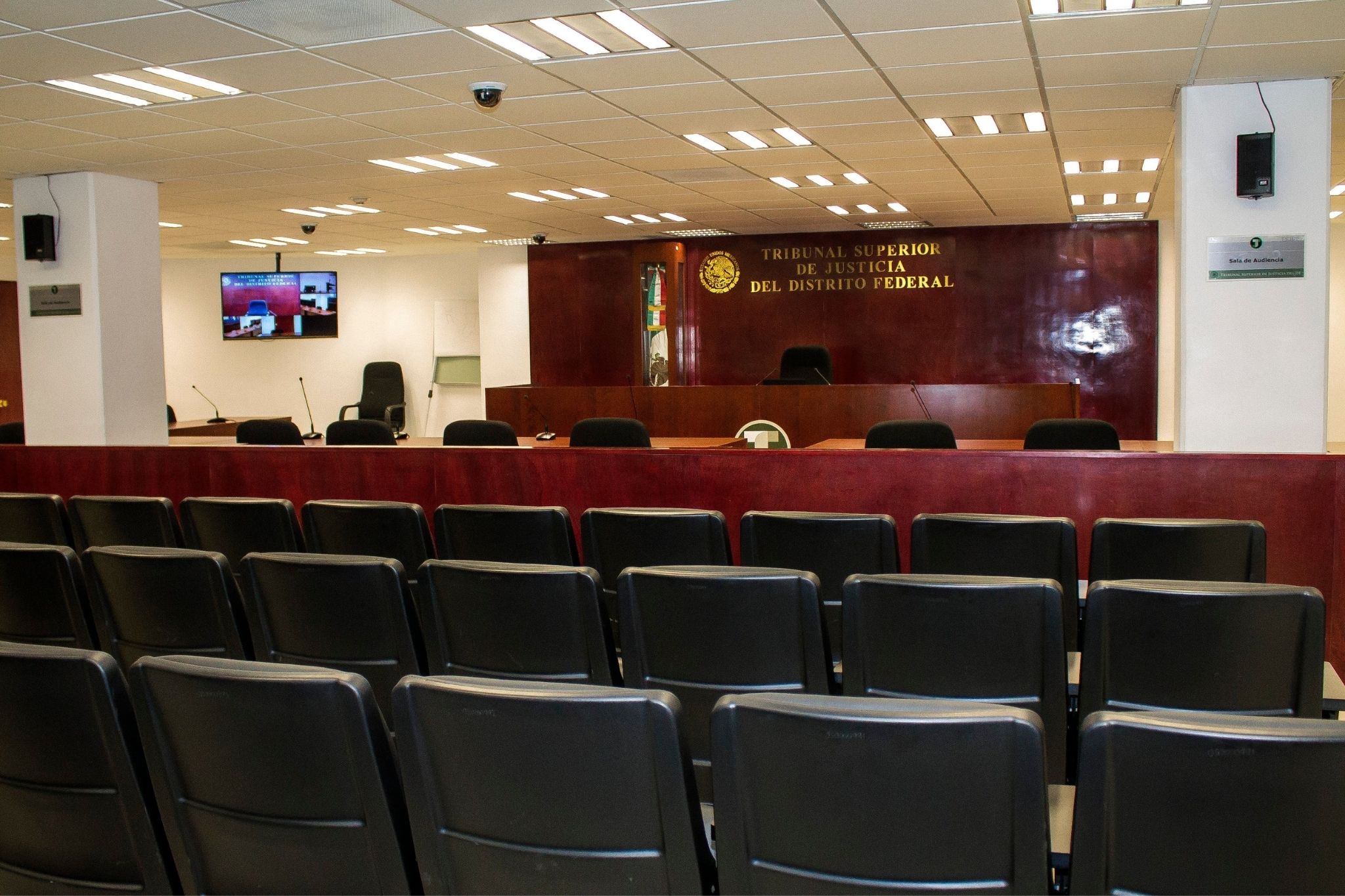Executive Summary: Hiring the right lawyer in Mexico is crucial for protecting your interests, but the process can be daunting. In this comprehensive guide, a seasoned litigation attorney reveals the lesser-known aspects of Mexico’s legal system and shares proven strategies for finding the best legal representation. Uncover the key criteria, red flags, and due diligence steps to ensure you choose a reliable and competent lawyer who will fight for your success.
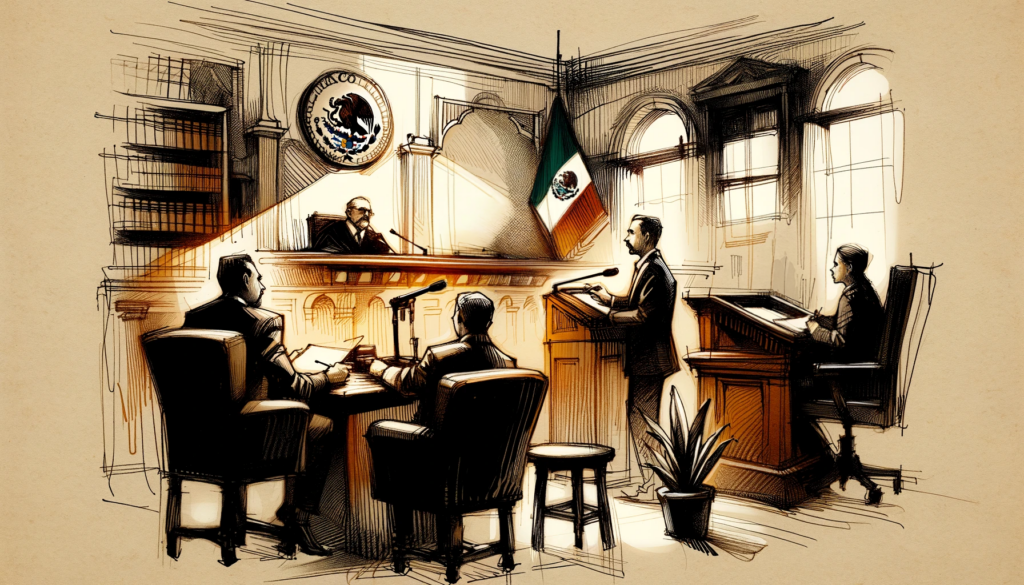
Introduction: Searching for Lawyers in Mexico
Have you ever found yourself in need of legal assistance, but felt overwhelmed by the grueling process of finding a reliable and competent lawyer? I have. As a lawyer with 25 years of experience running a boutique law firm specializing in litigation across Mexico, I’ve had the challenging task of searching for qualified lawyers throughout the country to partner with our firm. Yes, I made my share of mistakes early on (which I’ll tell you about later), but these early missteps, along with years of practice and dealing with multiple attorneys and law firms, have allowed me to develop a proven method for finding and retaining the best lawyers in Mexico.
In this article, I’ll guide you through the process, step by step. We’ll cover the unique aspects of the legal profession in Mexico, including the surprising fact that bar association membership isn’t mandatory, and what that means for ethical regulation and accountability. I’ll share insider tips on where to start your search, how to confirm the reliability and competence of lawyers, what red flags to avoid, and how to navigate the often-confusing world of legal fees and services agreements.
By the end of this article, you’ll have a clear roadmap for finding and retaining the ideal lawyer for your specific legal need in Mexico. Whether you’re facing a complex litigation case or simply need guidance on a business transaction, contracts, or investment, you’ll be equipped with the knowledge and tools to make informed decisions and achieve the best possible outcome.
So, let’s dive in and demystify the process of finding and hiring the best lawyers in Mexico.
Comparative Overview: Legal Practice in Mexico and the USA
The legal profession in Mexico operates quite differently compared to most countries, especially the United States. In the USA, attorneys must gain admission to the state bar association where they intend to practice law. This regulation and restriction of legal practice aim to establish and maintain high professional standards for attorneys, protecting clients from unscrupulous practices and ensuring that admitted lawyers are qualified. Consequently, consumers and the public can rely on a certain level of protection and assurance that the attorneys they hire will meet these professional standards. In case of unethical or illegal behavior by their attorneys, clients can turn to the bar association to file a complaint. Moreover, before hiring an attorney, individuals can check with the bar association to verify that the lawyer’s record is “clean” and that they are in good standing.
In stark contrast, Mexican attorneys are not obligated to gain admission to any bar association to practice law in Mexico. As a result, bar associations in Mexico, which exist in every state, do not play a crucial role in regulating legal practice to ensure that attorneys uphold high standards of professional conduct. If you are seeking an attorney in Mexico for legal assistance, you cannot rely on the bar association for a due diligence check to ensure that you are not entering into a risky situation.
Regulation and Accountability of Lawyers in Mexico
Mexico is one of the few countries in the world where bar association membership or examination is not required for legal practice. Upon finishing law school and obtaining a license (“cédula profesional“) from the Secretary of Public Education (SEP) following examinations, lawyers simply register their license with state and federal courts. This allows lawyers to practice law nationwide without jurisdictional limitations or having to prove knowledge of local laws. The SEP, however, lacks specific disciplinary procedures for attorneys, which leads to a largely self-regulated profession with limited and deficient accountability mechanisms compared to mandatory American bar associations that enforce strict ethical codes. This voluntary self-regulation enables misconduct that may escape sanction beyond potential criminal charges for unlawful acts or civil liability, contributing to unpunished unethical attorney conduct in their general practice.
The scarce regulation of legal practice in Mexico is thus fragmented across federal and state laws, as well as codes of ethics from private bar associations, leading to inconsistencies and contradictions regarding lawyers’ key professional duties and rights, such as exceptions to client confidentiality and liability for negligence.
With the SEP lacking specific disciplinary procedures for attorneys, the responsibility rests on the states. Some state laws have some accountability measures, but there is no consistency and most procedures available are seldom effective. Potential sanctions are limited and go no further than temporary suspension of practice. Expulsions from voluntary bar associations do not prevent or impair ongoing practice. Lawyers face potential criminal penalties for certain misconduct like presenting false evidence or filing notoriously unjustified defenses or remedies in court, abandoning the legal representation of clients without proper cause, etc. In an article published in 2017, Ximena Medellin Urquiaga (The Regulation of Legal Education and the Legal Profession in Mexico: An Ongoing Battle) reported that from 1997-2012, less than 1,500 Mexican lawyers were prosecuted in Mexico for offenses related to their professional practice. As criminal law focuses on punishment over victim compensation, legal malpractice cases typically rely on civil liability for intentional or negligent conduct. However, clients face many challenges and costs in filing and prosecuting a new civil case, which will require to retain yet another Mexican lawyer to file a successful claim.
The Role of Bar Associations in Mexico
Since 1875, mandatory affiliation in a bar or association was terminated as a requirement for legal practice in Mexico. Nonetheless, the system continued, allowing for the creation of voluntary professional associations. By 1970, there were three major national bar associations:
- Ilustre y Nacional Colegio de Abogados de México (1760)
- Barra Mexicana, Colegio de Abogados (Mexican Bar Association) (1922)
- Asociación Nacional de Abogados de Empresas (“ANADE”) (1970)

These national professional associations remain the most influential in the country today, complemented by numerous local bar associations established under state law. However, most organizations are widely perceived as predominantly social networks with minimal impact on the regulation of legal practice in Mexico. This sentiment was echoed in an article by renowned scholar Hector Fix-Fierro (“Notes on the Impact of Lawyer Performance on the Administration of Justice“) who, referencing a 2001 study by Concha and Caballero, noted that several judges surveyed viewed bar associations as scarcely representative, often pursuing political aims and “flourishing” primarily during election seasons. Unfortunately, this perception persists among most lawyers, who see these associations as mere social clubs or political trampolines, leading the majority of legal professionals to avoid bar affiliation altogether.
There is no official information on the total number of lawyers currently affiliated with national or local associations.
Public Perception and Challenges in the Mexican Legal Profession
These factors, combined with the poor performance of the courts, which is often exacerbated by bad faith litigation, have likely contributed to the negative perception of the legal profession in Mexico among judges and the general public. The survey study referenced by Fix-Fierro in his article revealed that 25 percent of all trial and appellate judges interviewed considered lawyers to be one of the main obstacles in their judicial activities, citing a lack of professional knowledge and questionable practices. Shockingly, 40 percent of civil judges rated attorney performance as ‘poor,’ while an alarming 55 percent of criminal judges deemed it outright ‘bad.’
More recently, the 2017 Survey on Public Perception of Science and Technology in Mexico (ENPECYT) confirmed that the legal profession in Mexico does face a significant challenge in terms of public perception and trust. The survey found that lawyers ranked among the least respected professions in Mexico, with only 5.9% of respondents considering work from lawyers respectable. This places lawyers just slightly above police officers (5.1%) and judges (4.4%) in terms of public esteem. In contrast, professions such as firefighters (59.5%), inventors (48.4%), nurses (41.5%), and researchers (34.6%) are held in much higher regard. The low public opinion of lawyers in Mexico stresses the need for increased transparency, accountability, and ethical standards within the legal profession to restore public trust and ensure access to quality legal representation for all citizens.
As with any country, Mexico has its share of excellent lawyers, but there are also those who tarnish the reputation of the legal industry. The absence of mandatory bar membership and the lack of consistent regulatory oversight have led to a system where the burden of due diligence falls on the client when seeking legal representation in Mexico. While this may present challenges, understanding the unique aspects of the Mexican legal system and following proven strategies for selecting the right attorney can significantly increase the chances of securing quality legal representation and achieving a favorable outcome.
Understanding your legal need and the type of lawyer in Mexico who can best assist
Imagine you had persistent chest pain for several days, with symptoms resembling heart disease. Would you visit a proctologist or an orthopedist for diagnosis? Probably not. While you might discuss symptoms with your general doctor initially, you would seek treatment from a specialist. The same principle applies when searching for a lawyer. An attorney specializing in labor law, representing disgruntled employees against their employers, will likely have little knowledge about trademarks, child custody, or probate. In fact, Mexican lawyers specializing in labor matters are part of a unique, close-knit industry group, often focusing exclusively on these issues and avoiding or rejecting any legal matter outside their scope.
Before starting your search for a lawyer in Mexico, it is crucial to identify your specific legal need and the type of lawyer or law firm best suited to address it. You need an attorney who specializes in the relevant field, with experience handling similar problems to yours. This will significantly increase your chances of achieving a successful outcome.
Areas of specialty
When choosing a lawyer in Mexico, ensure they have good experience and specialize in the specific issue you face. Some common areas of specialty include:
- Tax (fiscal), administrative, and customs law: These lawyers help with tax compliance or business tax planning, disputes with tax or customs authorities, import/export regulations and procedures, duties, sanctions or fines from customs authorities or government in general. Businesses involved in ongoing international trade or subject to Mexican law regulations may frequently need such legal services.
- Criminal Law: Specialists in this area handle cases ranging from minor offenses to serious crimes, representing either the defense or the prosecution.
- Family Law: This specialization includes matters like divorce, child custody, alimony, and adoption, requiring a lawyer with sensitivity and expertise in family-related legal issues.
- Labor Law: These lawyers represent clients in employment disputes, including wrongful termination, labor union negotiations, etc.
- Civil and commercial litigation: These lawyers represent clients in court for various disputes, such as breach of contract, probate, real estate disputes, etc. If you are involved in a legal dispute with a Mexican company or an individual (including business owners), you would need a skilled litigator to represent your interests.
- Intellectual property (IP): Attorneys in this field help clients protect their intellectual property, such as patents, trademarks, copyrights, etc. If you are a foreign company looking to expand into the Mexican market, you would need an IP lawyer to help you register and protect your brand and products.
- Corporate law: Corporate law firms assist clients with various business-related matters, such as incorporation (company formation), mergers and acquisitions, corporate governance, corporate partnership agreements, etc. If you are looking to establish a subsidiary or a joint venture in Mexico, a corporate lawyer would be essential in ensuring compliance with local laws and regulations.
- Transactional law (contracts): Transactional lawyers draft, review, and negotiate various types of contracts, such as employment agreements, lease agreements, and sales contracts. Regardless of your industry, having a skilled transactional lawyer is crucial to protect your interests and minimize legal risks.
- Debt collection: These attorneys specialize in helping clients recover outstanding debts from other businesses or individuals. If you are a foreign company with unpaid invoices or loans from a Mexican client, a debt collection lawyer can help you navigate the local legal system to recover your money.
Industry Focus
Some law firms specialize in serving specific industries, possessing comprehensive knowledge across various legal fields to address unique industry challenges. For example, the maquiladora industry in Mexico (in-bond manufacturing), highly successful along the northern border and throughout Mexico (with foreign investment of 9,050 million dollars expected for 2024, as reported recently by Forbes Mexico), has specialized legal needs covering corporate, intellectual property, transactional, administrative (e.g., regulations and permits), and tax law. These specialized law firms support this sector by developing tailor-made solutions to the complex regulatory and operational hurdles.
Another example is the energy sector, which has undergone significant reforms in recent years. Law firms specializing in this industry and specific legal areas have deep knowledge of the regulatory framework, environmental regulations, and contractual arrangements specific to energy projects. They can assist foreign investors in navigating the complexities of the Mexican energy market, from project development to dispute resolution.
In conclusion, understanding your specific legal need and finding a lawyer or law firm with the appropriate specialization and industry focus is essential to achieving a successful outcome in Mexico. By doing so, you can ensure that your legal matter is handled by a professional with the knowledge, skills, and experience necessary to protect your interests and resolve your issue effectively.
Sources for Finding Lawyers in Mexico
When searching for a reliable lawyer in Mexico, it’s key to have a systematic approach that helps you gather a reasonable number of options for evaluation and then narrow down your choices through a thorough screening process. Our firm has identified five key sources that we consistently rely on to find qualified legal professionals in Mexico: 1) the US Consulate list of attorneys, 2) LinkedIn, 3) chambers of commerce, industry associations, and trade organizations, 4) directories and law lists, and 5) Google searches.

US Consulate lists of attorneys in Mexico
One of the most valuable resources for finding trustworthy lawyers in Mexico is the US Consulate’s list of attorneys. In the past, each consular district in Mexico, including Mexico City, Guadalajara, Ciudad Juarez, Hermosillo, Merida, Monterrey, Matamoros, Nogales, Nuevo Laredo, and Tijuana, published its own list of attorneys available within their jurisdictions, who were capable of assisting US citizens with legal issues in Mexico. However, the US Consulate has since consolidated these lists into a single, user-friendly online database that guides you through the process of finding lawyers in a specific consular district. You can access this database through the following link: https://mx.usembassy.gov/local-resources/
The US Consulate list offers several advantages. First, the consulate has already conducted a preliminary screening process, filtering out lawyers who don’t meet certain requirements. Second, the lawyers and law firms featured on the list have a vested interest in maintaining their listed status and the business opportunities that come with it. This incentivizes them to provide a high level of service and adhere to the utmost ethical practices. In essence, the list serves as a form of quality assurance, as any deviation from ethical standards could lead to clients reporting the lawyer to the US Consulate, potentially resulting in their removal from the list.
LinkedIn has emerged as a powerful tool for finding professional service providers, including lawyers. While the search filters on free LinkedIn accounts are somewhat limited, premium and sales navigator accounts offer a range of advanced search options that allow you to target keywords in a professional’s history or experience, precise location, industry, and position. Even with a free account, however, you can still gather a large pool of lawyers in a specific location. Although this approach may be time-consuming, it provides a solid foundation of candidates to work with, and in some cases, you may find enough information on these professionals to determine if they specialize in the field relevant to your legal needs.

Chambers of Commerce or Industry, Trade Associations, in Mexico or Abroad
Lawyers often have strong ties to chambers of commerce, industry associations, and trade organizations, both in Mexico and abroad. These professionals may be known as leaders in their communities and as important service providers to members of these groups. Some organizations to consider when searching for qualified legal candidates include chambers of commerce and industry in both Mexico and the USA, as well as trade associations. Service clubs like Rotary International and Lion’s Club, along with other nonprofit or charitable groups, may also provide opportunities to find reputable lawyers.
Working with a lawyer who has close connections to such organizations can provide an additional layer of reassurance. These lawyers face social pressure from the group and its members to deliver high-quality service to all clients, as their reputation within the community is at stake. This social pressure can serve as a deterrent against poor service or unethical practices, as any missteps could jeopardize their standing within the organization.
When evaluating a potential legal representative, ask about the groups or organizations they belong to. As social creatures, humans tend to seek out various communities, and lawyers are no exception. These are the circles where you can seek references about the lawyer (both positive and negative) and where you can turn if they suddenly become unresponsive. If a lawyer is a respected figure within their community or industry groups, it’s a good indication that they are professional, trustworthy, and hardworking. Conversely, if no one in these networks can vouch for them, it may be a red flag worth considering.
While some of these organizations may not publicly list their members, a quick phone call can often yield a shortlist of legal professionals who are either members or provide assistance to the group in some capacity, such as through public speaking or training. This can be a valuable starting point for your search, as it helps you identify lawyers who are actively engaged in their industry and community.
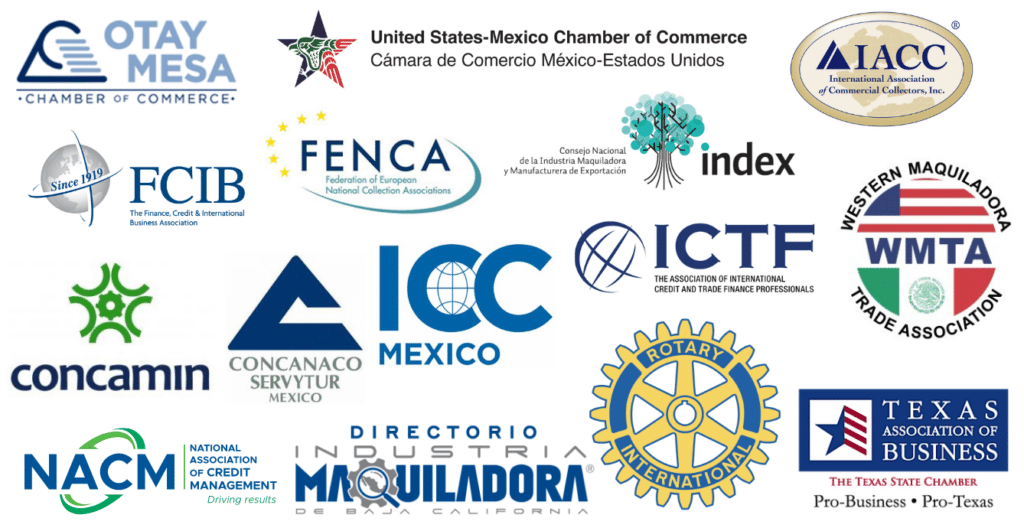
Directories
Legal directories can be excellent starting points when searching for lawyers in Mexico. One of the most well-regarded resources is Martindale-Hubbell, and its sister site Lawyers.com, which is part of the Martindale-Avvo Network. These platforms offer extensive listings of lawyers in most countries, including Mexico, providing a solid foundation for your search.
When other methods fail to yield sufficient results, a classic Google search can be a reliable backup. The goal is to cast a wide net and find as many lawyers as possible in the desired area, then filter the options based on their specialties. Once you have identified a handful of promising candidates, you can further research them using the list from the US Consulate, bar associations, industry groups, chambers of commerce, and LinkedIn to gain a more comprehensive understanding of their qualifications and reputation.
By leveraging these five key sources, you can create a robust list of potential lawyers in Mexico and then systematically narrow down your options to find the best fit for your specific legal needs. Remember, the key is to be thorough in your research and to look for consistent indicators of professionalism, expertise, and integrity across multiple channels.
How to confirm the reliability and competence of lawyers
While it can be challenging to fully assess a lawyer’s competence before engaging their services, there are several steps you can take to increase your chances of selecting the best option available.
First, check if the lawyer is licensed and authorized to practice law in Mexico
The first step before retaining a lawyer in Mexico is to ensure they are duly licensed and authorized to practice law in the country. As mentioned earlier, this is permitted once an attorney obtains their “cédula profesional” from the Secretary of Public Education (SEP). The SEP maintains a publicly accessible database of professionals, which you can search by the lawyer’s full name to verify their credentials.
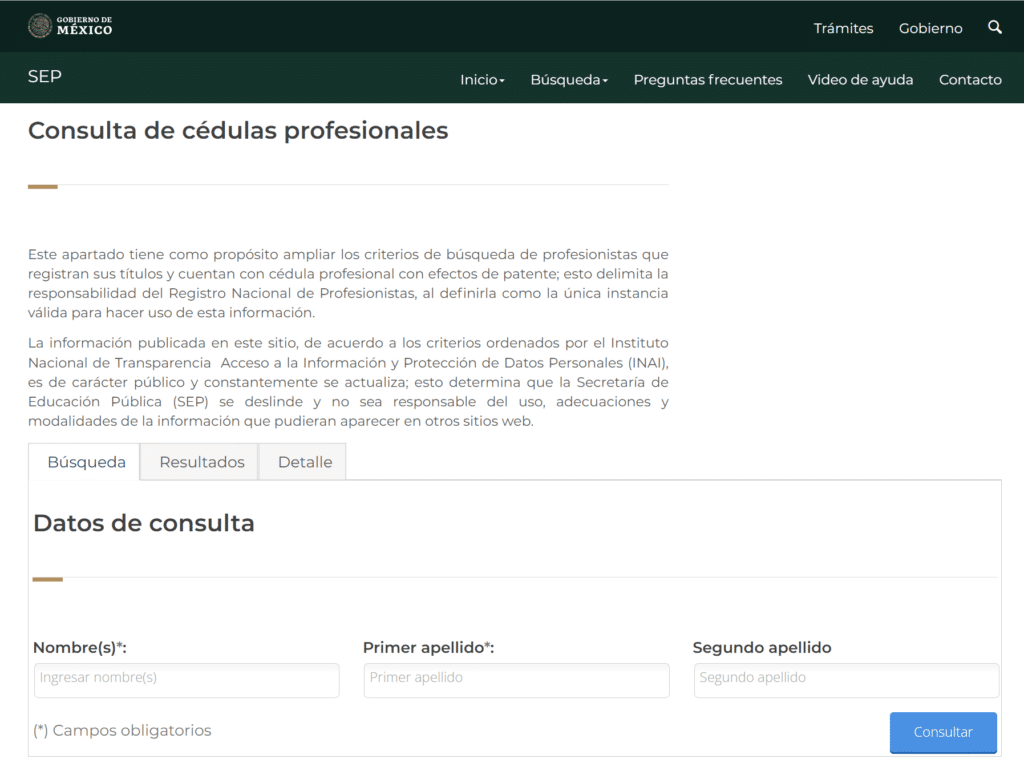
Second, check out references, past clients, past cases
Is the attorney willing and able to provide references? Ask the lawyer to provide references from past clients and inquire about the types of cases they have handled. Request specific details about their experience and areas of expertise. While recommendations from friends or business acquaintances can be helpful, it’s essential to dig deeper. If someone recommends a lawyer, ask if the lawyer has provided services to them directly and, if so, what type of problem they solved and in which field they specialize. Ensure that the referred lawyer has successfully dealt with legal issues similar to yours on a regular basis.
Is the attorney willing and able to provide references? Ask the lawyer to provide contact information for past clients and inquire about the types of cases they have handled. Request lawyers for specific details about their experience and areas of expertise. While recommendations from friends or business acquaintances can be helpful, it’s essential to dig deeper. If someone recommends a lawyer, ask if the lawyer has provided services to them directly and, if so, what type of problem they solved and in which field they specialize. Ensure that the referred attorney has successfully dealt with legal issues similar to yours on a regular basis.
Additionally, reach out to the bar associations or industry groups the lawyer belongs to for further information on their reputation and standing within the legal community.
Yes, this step is probably the hardest and most time-consuming, but it is also the most crucial in assessing and confirming a lawyer’s competence to address your specific legal needs. Taking the time to thoroughly investigate references, past clients, and cases can save you from potential headaches and disappointment down the line. Don’t hesitate to ask tough questions and request detailed information about the lawyer’s track record. A competent and reliable attorney should be transparent and forthcoming about their experience and be able to provide you with the information you need to make an informed decision.
Third, investigate if they have been involved in lawsuits
To further ensure your attorney’s reliability, conduct an investigation to determine if they are personally involved in any lawsuits. Given the limitations in ethical regulation and accountability mechanisms in Mexico, the primary means of redress for aggrieved parties (such as past clients) may be criminal or civil action. Investigating a lawyer’s involvement in lawsuits can help you identify potential red flags and avoid engaging with someone who may not be trustworthy.
Several service providers in Mexico, including our firm, offer this type of investigation. These searches are typically fast, inexpensive, confidential (parties are unaware they are being investigated), and reliable. The investigation involves searching state and federal court records throughout the country to find lawsuits filed by or against a specific individual or company. Although the information provided on the cases found may be limited, with no details on the subject matter or content of the lawsuits, the results can help you determine if the lawyer in question has any legal actions filed against them, which could be a cause for concern.
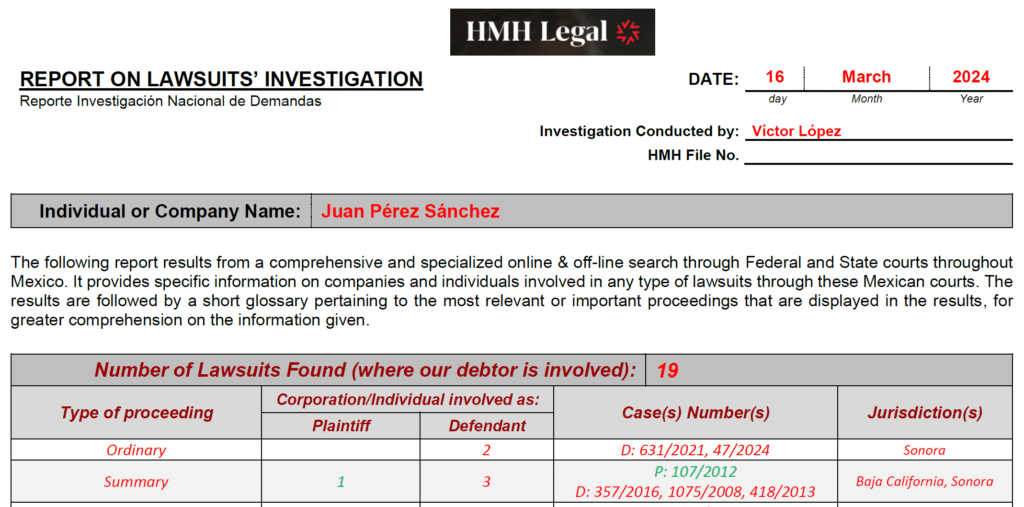
Our firm learned the importance of investigating a lawyer’s involvement in lawsuits the hard way. Many years ago, we hired an attorney in Torreon, Coahuila, based on a friend’s referral, only to discover that the lawyer was collaborating with the defendant’s counsel. We later learned that “our lawyer” had multiple lawsuits filed against him by other clients. Had we conducted a thorough investigation into the lawyer’s background and involvement in lawsuits, we could have avoided this unfortunate situation. This experience underscores the value of due diligence and the tools discussed in this article, which can help you identify potential red flags and steer clear of untrustworthy or incompetent lawyers.
Red Flags to Watch Out For
When searching for a reliable lawyer in Mexico, it’s crucial to be aware of potential red flags that may indicate a lack of competence, integrity, or specialization. Here are some key warning signs to keep in mind during your vetting process:
Questionable References and Testimonials
While references and testimonials from past clients and colleagues can be valuable, it’s important to approach them with a degree of skepticism. I am usually cautious about references, unless the referring source confirms that the lawyer successfully resolved a case similar to mine. Sometimes, referring partners will recommend friends, family members, or acquaintances without having a clear understanding of their true capabilities, knowledge, or experience in handling relevant cases. To ensure the quality of referrals, seek out references that can validate the lawyer’s successful track record in cases closely related to your specific legal needs.
Dubious Directories and Awards
Be wary of directories and awards that claim to recognize outstanding lawyers. Many of these are paid services, and the criteria for inclusion or recognition may not be based on merit or actual performance. I constantly receive requests to sign up for directories and invitations to request “trophies” or awards for my supposed outstanding performance as a lawyer. However, these organizations often have no clue about my actual legal capabilities and performance. Here is an example of the last one I received:

Despite this, many lawyers sign up and brag about these dubious accolades. If a Mexican attorney boasts about being featured in a directory or receiving an award, investigate the credibility of the organization behind it. Legitimate recognition should come from reputable sources within the legal industry.
Lack of Transparency
Law firms or lawyers who do not disclose information about their team members, their backgrounds, or the firm’s director on their website or professional profiles may be cause for concern. I steer clear of attorneys in Mexico who do not provide their name and profile publicly, as it suggests they have something to hide. If a lawyer is reluctant to provide details about their background or their firm’s structure, it’s best to continue your search elsewhere.
Lack of Specialization or Industry Focus
Exercise caution when considering Mexican lawyers who advertise themselves as general practitioners, claiming expertise in a wide range of legal fields. While solo practitioners or small law firms in smaller cities or towns may offer services across various areas of law due to limited local resources, it’s generally preferable to work with a specialist who has deeper knowledge and experience in the specific area related to your legal needs.
I have a hard time believing that a single lawyer can master the complexities of fields as diverse as civil law, criminal law, family law, amparo, and land title registration to provide the best advice on a specific case. You need someone with solid experience and knowledge in cases similar to yours.
However, in small cities or towns, finding a specialist in your required field of law may be challenging. If your legal need is straightforward and falls within the general areas serviced by a local attorney, you should be fine as long as you conduct proper due diligence. For complex matters or those outside the local lawyer’s scope, it’s critical to retain a specialist and have them collaborate with the local lawyer, clearly defining each one’s responsibilities.
In the past, our firm has successfully partnered with highly qualified local attorneys to pursue cross-border litigation. We bring our expertise in international disputes to the table while leveraging the local lawyer’s strong litigation skills and intricate knowledge of the courts in their jurisdiction.
Insufficient Online Presence or Poor Website Quality
In today’s digital age, a professional online presence is essential for lawyers and law firms. If a lawyer has a limited or non-existent online footprint, it may indicate a lack of investment in their professional image or a reluctance to engage with potential clients. Similarly, a poorly designed or outdated website can suggest a lack of attention to detail or a failure to stay current with modern business practices.
Unprofessional Communication
Pay attention to how a lawyer communicates with you during your initial interactions. If they are unresponsive, take an excessive amount of time to reply to your inquiries, or provide unclear or evasive answers to your questions, it may be a sign of poor communication skills or a lack of commitment to client service. A reliable and competent lawyer should be prompt, transparent, and professional in their communications with potential clients.
By being mindful of these red flags and conducting thorough due diligence, you can avoid hiring a lawyer who may not be well-suited to handle your specific legal needs in Mexico. Trust your instincts and don’t hesitate to continue your search if something doesn’t feel right about a particular lawyer or law firm in Mexico.
Fee Structure and Practices: How Lawyers Charge in Mexico
When it comes to fee arrangements, Mexican lawyers enjoy an ample degree of flexibility compared to their counterparts in other countries. Each Mexican state may offer some regulations regarding legal fees, but these typically apply when there is a dispute over the amount an attorney is entitled to or when determining court-awarded attorney fees against a losing party, when there was no stipulation at all regarding legal fees in the underlying contact. These laws do not restrict fee agreements between lawyers and clients, who are free to negotiate any terms or amounts (including contingent fees), subject only to general contract law principles, such as the absence of duress, error, bad faith, or arrangements contrary to public policy.
Given this lack of limitations, attorneys and clients in Mexico can choose from a wide range of fee structures that best suit their firm’s business model or the client’s needs. There is no one-size-fits-all approach. Common fee arrangements include:
- Contingency Fees: Contingency fees are prevalent in litigation, with rates typically ranging from 5% to 35% of the amount involved in the dispute. It is usually considered a ‘success’ fee. The exact percentage depends on factors such as the case value, the nature of the claim, the risks involved based on supporting documentation, the age of the claim and, in the case of debt collection, based in the estimated likelihood of collection or success based on the debtor’s legal and financial situation.
- Hourly Rates: The influence of U.S. law firms establishing offices in Mexico has made hourly fee arrangements more common. Rates can vary significantly, from hundreds to thousands of dollars per hour, depending on factors such as the involvement of partners or associates, the size and reputation of the firm, and the complexity of the matter.
- Fixed Fees: Most attorneys, particularly those in small firms or solo practices, offer fixed fee arrangements for handling cases through various stages of litigation, or for specific transactional projects, such as contracts. Fixed fees in litigation are often calculated as a percentage of the total claim value. Under this fee arrangement, it is common for attorneys to request an initial retainer or advance payment of fees prior to or at the time of filing the complaint. Attorneys will also require an advance for costs (e.g., translations, certifications, filing fees, document preparation, etc.), which can be substantial and should be considered by counsel representing foreign clients. Finally, attorneys may also require advancements of fees throughout the case, based on progress or milestones reached, including the successful outcome or finalization of the case or project.
Legal service agreement
Once you have agreed upon the terms of representation with your Mexican lawyer, it is essential to request and review a comprehensive legal services agreement. Pay close attention to the scope and extent of the legal services to be provided, as well as the agreed-upon legal fees and any authorized costs or expenses. The agreement should clearly outline when payments are due, the amounts owed, and what triggers or justifies each payment, especially if contingency fees were agreed upon in whole or in part.
Consider the following questions when reviewing the legal service agreement:
- Is there a cap on costs or expenses?
- Will the lawyer provide a statement of account on a monthly or quarterly basis?
- Does the client need to authorize certain expenses before they are incurred, especially high-cost items?
One common failure of Mexican lawyers is that of reporting properly and timely. For reasons beyond my comprehension, I have found that good communication (especially with clients who don’t speak Spanish) is just not within the culture of many lawyers, including those who are highly competent and reliable legal counsels. That is why it makes sense to include specific clauses that discuss reporting requirements and reinforce the importance of this during the hiring. A well-drafted communication clause should address:
- The frequency of reports
- The type of reports to be provided (e.g., risk assessments, strategy and action plans for litigation or complex projects)
- Whether the lawyer will provide the client with all work-product, such as copies of pleadings and documents filed with the courts
Remember, it is part of a lawyer’s main duty to keep clients well informed about the progress of their case and to ensure transparency in the legal representation. Clients have the right to be informed and to make decisions regarding their representation, which includes having access to relevant documents and information.
By carefully reviewing and negotiating the terms of your legal service agreement, you can establish a strong foundation for a productive and transparent working relationship with your attorney in Mexico.
Conclusion: Your Roadmap to Finding the Right Lawyer in Mexico
Finding the right legal representation in Mexico can be a daunting task, especially for foreign companies and individuals unfamiliar with the country’s unique legal system. Throughout this article, we’ve explored the key aspects of the Mexican legal landscape, including the regulation of the legal profession (and deficiencies thereof), the role of bar associations, and the challenges in ensuring accountability and ethical standards among lawyers.
We’ve also highlighted the importance of understanding your specific legal needs and finding a lawyer with the appropriate specialization and industry focus to address them effectively. By leveraging a combination of reliable sources, such as the US Consulate lists, LinkedIn, industry associations, directories, and targeted Google searches, you can gather a pool of potential candidates to evaluate further.
However, the process doesn’t stop there. Conducting thorough due diligence is crucial to ensure the reliability and competence of your chosen attorney. This includes verifying their credentials, seeking references from past clients, and investigating their involvement in lawsuits or similar projects. Additionally, being aware of potential red flags, such as questionable awards, lack of transparency, insufficient specialization, and unprofessional communication, can help you avoid hiring a lawyer who may not be well-suited to your needs.
Finally, we’ve discussed the various fee structures and practices common among Mexican lawyers, emphasizing the importance of having a comprehensive legal services agreement that clearly outlines the scope of work, fees, expenses, and communication expectations.
To help you navigate this complex landscape and make informed decisions, we’ve compiled a checklist of key steps to follow when selecting and hiring the best lawyers in Mexico.
CHECKLIST
How to hire the best lawyer in Mexico
- Understand the legal profession in Mexico.
Understand the limited regulation and oversight of the legal profession in Mexico.
- Determine specific legal need.
Determine your specific legal needs and the type of specialist best suited to address them.
- Generate options for lawyers.
Gather referrals from reliable sources (US Consulate, LinkedIn, industry associations, directories, Google).
- Verify and investigate lawyers.
Verify that the lawyer is licensed to practice law in Mexico and investigate if he has been involved in lawsuits.
- Confirm lawyer’s experience.
Seek references from past clients and inquire about the lawyer’s experience with cases similar to yours.
- Look for red flags.
Watch out for red flags (questionable accolades, lack of transparency, insufficient specialization or online presence, unprofessional communication).
- Review fees & services agreement.
Discuss fee structures, reporting requirements, and prepare a clear legal service agreement.
By keeping these key points in mind and following the steps outlined in the checklist, you’ll be well-equipped to find and hire a top-tier Mexican lawyer who can provide the specialized expertise, reliability, and commitment needed to protect your interests and achieve your desired outcomes.
At HMH Legal, we understand the challenges that foreign companies and individuals face when navigating the Mexican legal system. With a unique focus on creditor protection and cross-border issues, our team of experts is here to guide you through the process and help you achieve success in Mexico.
If confronting a complex cross-border business dispute with a Mexican counterpart without clear solutions, please reach out to our international team and schedule a free consultation to assess your situation in confidence. For over 25 years, our lawyers have guided numerous foreign creditors to favorable outcomes through case-specific counsel, leveraging extensive litigation expertise and in-depth jurisdictional knowledge.
What Is HMH Legal?
HMH Legal is a boutique law firm that focuses exclusively on creditor protection in Mexico and Latin America. We assist:
- Foreign companies and individuals selling on credit or lending money to businesses in Mexico
- Individuals and companies investing in Mexican companies, business projects, or real estate
Our services include:
- Due diligence on projects, businesses, and real estate
- Drafting and implementing contracts and documentation to protect your interests
- Dispute resolution through mediation, negotiation, or amicable debt collection
- Cross-border litigation in Mexico
If you’re an exporter, lender, or investor seeking to protect your interests in Mexico, we’re the right fit for you. Contact us today to learn more about how we can help.
FAQs
Yes, you can hire a lawyer in Mexico to help you with your legal needs. However, it’s essential to understand that the legal system and the regulation of the legal profession in Mexico are different from other countries, such as the United States. Lawyers in Mexico are not required to be members of a bar association, which means you cannot rely on bar associations for due diligence or to ensure a lawyer’s competence and ethical standards. Therefore, it’s crucial to thoroughly research and vet potential lawyers before hiring them.
To verify a lawyer in Mexico, first ensure they are duly licensed by searching for their name in the public database of professionals maintained by the Secretary of Public Education (SEP). You can also check their references, past cases, and client testimonials. Additionally, investigate if they have been involved in any lawsuits, as this could be a red flag. Finally, confirm their specialization and experience in the specific area of law related to your legal needs.
To find a lawyer in Mexico, you can start by checking the US Consulate’s list of attorneys, which is available online and organized by consular district. You can also search for lawyers on LinkedIn or through chambers of commerce, industry associations, and trade organizations in Mexico and abroad. Other sources include legal directories, law lists, and even Google searches targeting specific locations. Once you have a list of potential lawyers, conduct thorough due diligence by verifying their credentials, checking references and past cases, and investigating their involvement in lawsuits. It’s also essential to ensure they specialize in the area of law relevant to your needs and have a strong track record of success in similar cases.
No, unlike in the United States, bar association membership or examination is not required for legal practice in Mexico. Lawyers simply need to finish law school and obtain a license from the Secretary of Public Education (SEP) to practice law nationwide.
To ensure a lawyer is licensed to practice law in Mexico, you can search for their name in the public database of professionals maintained by the Secretary of Public Education (SEP). This database is accessible online and allows you to confirm a lawyer’s credentials.
When hiring a lawyer in Mexico, watch out for questionable references and testimonials, dubious directories and awards, lack of transparency about the legal team, lack of specialization or industry focus, insufficient online presence, and unprofessional communication.
Mexican lawyers commonly use three types of fee structures: hourly rates, fixed fee agreements, and success fee (contingency) agreements. Clients can also opt for a combination of these fee types. The specific rates and percentages vary based on factors such as the complexity of the case and the lawyer’s experience.
In general, legal fees are not regulated under Mexican law, except for notaries who have a specific tariff rate established in the Notary Law. Lawyers and clients are free to agree on any fee arrangement, subject to general contract law principles.
When reviewing a legal services agreement with a Mexican lawyer, pay close attention to the scope of legal services, agreed-upon fees, authorized costs or expenses, payment terms, and triggers for payments. Additionally, ensure that the agreement includes clauses on reporting requirements and communication expectations to maintain transparency throughout the legal process.
DISCLAIMER: The information you obtain in this article is not, nor is it intended to be legal advice. The law office of HMH Legal will only provide legal advice after having entered into an attorney-client relationship. It is imperative that any action you undertake be taken on the advice of legal counsel, and not based solely upon this article.
This material has been provided as free educational message by HMH Legal. We invite you to send us your comments or to call us for a free consultation. If you have any questions please call us at +1 (619) 819-5107 or +1 (619) 819-8518. You can also email us at info@hmhlegal.com. If you would like further information about our firm or our educational handouts, please visit us at www.hmhlegal.com. © 2024 Romelio Hernández. All Rights Reserved.

